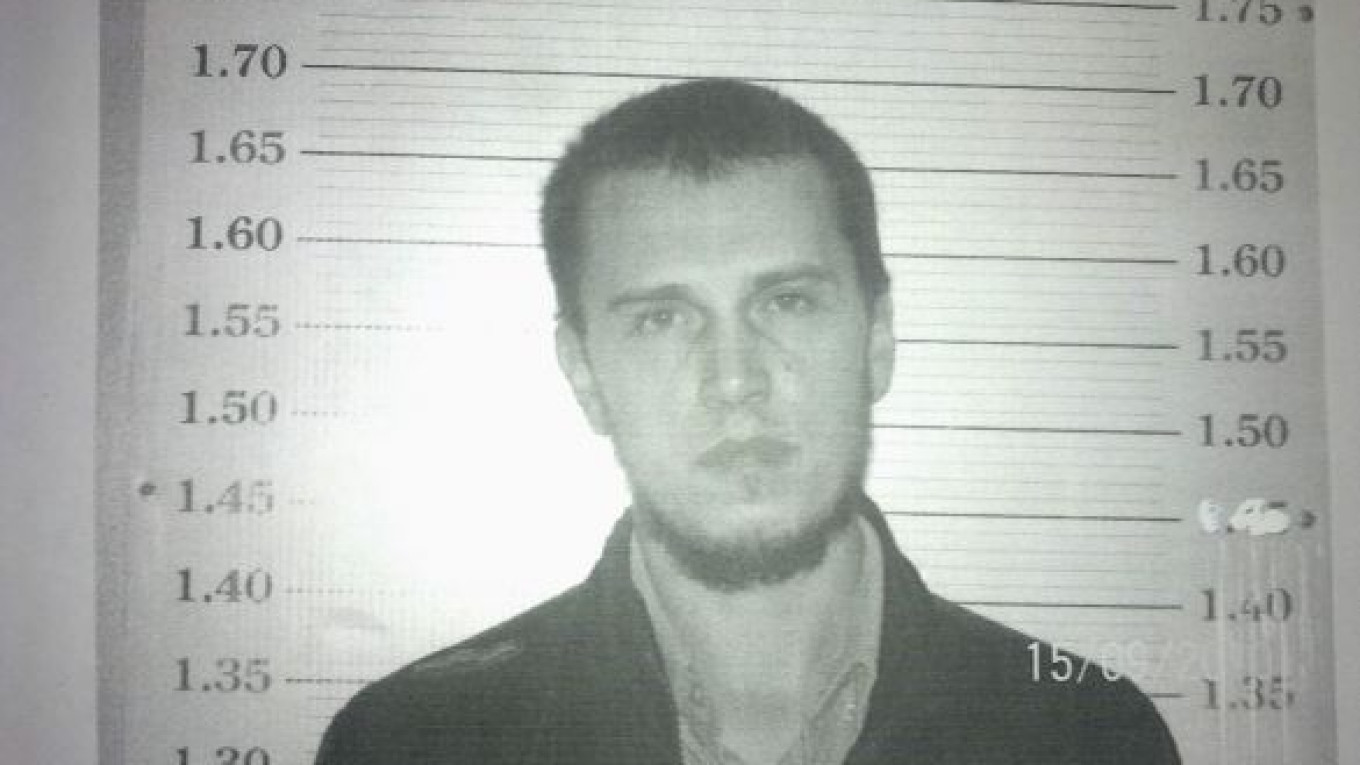Foreigners were specifically targeted in the Domodedovo Airport bombing that killed 35 people, investigators said as they announced that they had identified the suicide bomber.
The suspected suicide bomber was a 20-year-old male from the North Caucasus, the Investigative Committee said in a statement Saturday.
It withheld the suspect's name and did not say which part of the turbulent region he hailed from, citing the ongoing investigation.
Prime Minister Vladimir Putin has said Monday's blast was not linked to Chechnya. He did not elaborate.
Investigators said last week that they were looking for Vitaly Razdobudko, a 32-year-old native of the Stavropol region, located on the edge of the North Caucasus, in connection with the attack. Razdobudko is believed to be a member of the rebel group Nogai Jamaat (Nogai Battalion).
No one has claimed responsibility for the bombing in the airport's international arrivals hall.
The Investigative Committee said the location was chosen because “the terrorist attack was primarily targeting foreign citizens.”
Eight foreigners were killed in the blast, including citizens of Austria, Britain, Germany, Tajikistan, Ukraine and Uzbekistan. Another 18 more are listed among the 130 people who remain hospitalized.
President Dmitry Medvedev saw another foreign angle to the attack, telling foreign investors at the World Economic Forum in Davos last week that the attackers had sought to undermine his trip aimed at raising investment.
Also Saturday, investigators said they had identified all perpetrators behind a Dec. 31 bomb blast in Moscow, but denied earlier reports that the explosion was carried out by the same group responsible for the Domodedovo blast.
Nevertheless, they confirmed reports that a North Caucasus rebel group was preparing an attack downtown on New Year's Eve. Media said earlier that a suicide bomber was to blow herself up in a crowd of people on Manezh Square, but the device had accidentally gone off hours earlier, killing only the bomber.
?€?Some of the suspects have been put in custody, arrest warrants are pending for four people, and several people are wanted by the police,?€? the Investigative Committee statement said about the December blast.
News reports had linked Nogai Jamaat to both the New Year's and Domodedovo blasts.
Meanwhile, the State Duma responded to the attack by speeding up the introduction of a color-coded terrorist alert system similar to one that the United States is about to discard as useless.
The Duma unanimously passed in a first reading Friday a bill to introduce a three-stage warning system modeled after the one implemented in the United States after the Sept. 11, 2001, attacks.
The bill, which proposes to rate threats as blue, yellow and red depending on their seriousness, was introduced by the Federal Security Service in November in response to twin suicide bombings that killed 40 in the Moscow metro in March.
The bill does not specify criteria for distinguishing between the alert levels. No date for the other two required hearings has been set.
The first reading was scheduled for February but moved up after the Domodedovo attack.
FSB deputy director Yury Gorbunov told the Duma ahead of the reading that the alert system was need to inform the public about looming threats and to facilitate communication between security agencies.
But U.S. authorities said Thursday that their color-coded threat system will be scrapped and replaced by May after being deemed ?€?unhelpful.?€?
Russian officials did not comment on the discrepancy in approaches.
Meanwhile, a wave of bomb scares swept Moscow and St. Petersburg over the weekend, but all the reports of explosives in shopping malls, airports and a train station proved false.
Several shopping malls located just outside the Moscow Ring Road were evacuated Saturday and Sunday after notes about bombs planted on premises were found in their restrooms. Thousands of customers driven out the malls caused traffic jams on nearby highways.
Kursky Station was evacuated Sunday after a black bag was found abandoned on the premises, but it turned out to be a false alarm, Interfax reported.
Police also received hoax phone calls about bombs at the Domodedovo, Sheremetyevo and St. Petersburg's Pulkovo airports.
The calls in Moscow were made by an unidentified drunken 35-year-old man who said upon being detained that he had wanted to test the airports' security, Interfax said. The Pulkovo alert was traced to Ilya Korol, 20, a blogger from Ussuriisk, who may face up to three years in prison if charged with making a prank phone call about explosives.
A Message from The Moscow Times:
Dear readers,
We are facing unprecedented challenges. Russia's Prosecutor General's Office has designated The Moscow Times as an "undesirable" organization, criminalizing our work and putting our staff at risk of prosecution. This follows our earlier unjust labeling as a "foreign agent."
These actions are direct attempts to silence independent journalism in Russia. The authorities claim our work "discredits the decisions of the Russian leadership." We see things differently: we strive to provide accurate, unbiased reporting on Russia.
We, the journalists of The Moscow Times, refuse to be silenced. But to continue our work, we need your help.
Your support, no matter how small, makes a world of difference. If you can, please support us monthly starting from just $2. It's quick to set up, and every contribution makes a significant impact.
By supporting The Moscow Times, you're defending open, independent journalism in the face of repression. Thank you for standing with us.
Remind me later.


